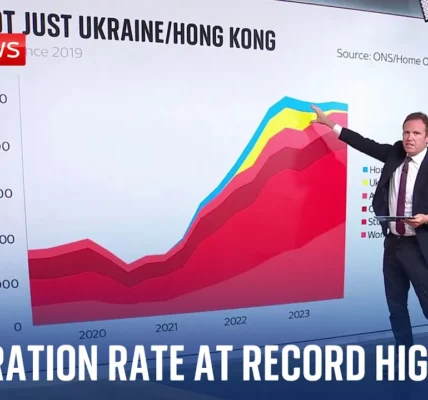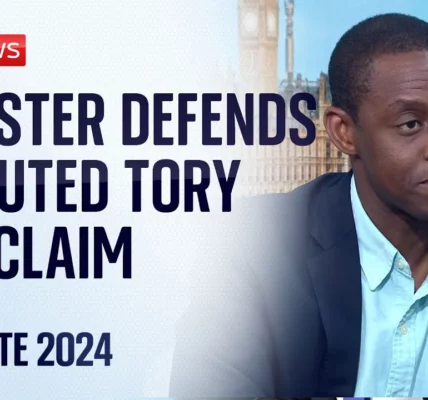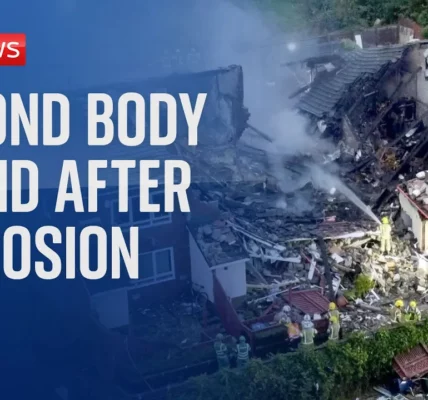Extraordinary 48 Hours in Beirut: Understanding the Current Crisis

Welcome to a comprehensive overview of the recent events in Beirut as reported by Yalda Hakim. This article delves into the unfolding crisis marked by deadly explosions, political tensions, and the public’s response amid fears of a broader conflict involving Hezbollah and Israel.
Introduction
In the last 48 hours, Beirut has found itself in a state of turmoil, with escalating tensions following a series of deadly explosions attributed to Hezbollah’s conflict with Israel. The city, historically a focal point of political instability, is now gripped by fear and uncertainty as the consequences of these events continue to unfold. As reported by Yalda Hakim, the situation is dire, with casualties mounting and concerns about further violence growing among the population. Understanding the dynamics at play is crucial in navigating the complexities of this ongoing crisis.
Recent Explosions and Casualties
Over the past few days, Beirut has witnessed a shocking surge in violence. Reports indicate that at least 37 individuals have lost their lives due to explosions that turned everyday devices into lethal weapons. These tragic incidents have resulted in numerous injuries, with many victims suffering life-altering consequences.
The Nature of the Attacks
The explosions have raised significant alarm among the Lebanese populace, marking a new level of violence that many fear could spiral into broader conflict. The use of ordinary devices as explosives is being described as a diabolical tactic, leading to widespread panic and concern.
Public Reactions
- Fear of further violence and bombings.
- Increased security measures in public spaces.
- Calls for international intervention and support.
Hezbollah’s Response and Political Implications
The leader of Hezbollah, Hassan Nasrallah, has made statements vowing to maintain support for Gaza and declaring a strong stance against perceived Israeli aggression. His recent speech, delivered from a secure location, highlighted the vulnerabilities faced by his organization in light of the recent attacks.
Security Precautions
In response to the perceived threats, Hezbollah has taken measures to protect its members and supporters. This includes the positioning of soldiers outside hospitals treating the injured, and a noticeable shift in public gatherings, which are now viewed as potential targets for further assaults.
International Reactions
The international community has expressed growing concern regarding the situation. British officials have urged nationals to leave Lebanon, emphasizing the dangers posed by the ongoing conflict. The United States has also reiterated the need for diplomatic solutions amidst the rising tensions.
The Human Impact of the Conflict
The consequences of the escalating violence extend far beyond the battlefield. Hospitals in Beirut are overwhelmed with casualties, and the psychological toll on the population is severe. Many families are grappling with the emotional aftermath of losing loved ones and witnessing the harrowing injuries inflicted on their community.
Healthcare System Under Strain
Medical professionals are working tirelessly to provide care, but the influx of injured individuals poses significant challenges. Reports suggest that surgeons from abroad are being called in to assist, highlighting the critical state of the healthcare system in Lebanon.
Public Sentiment
- Heightened anxiety and fear among the population.
- Calls for peace and stability amidst chaos.
- Growing discontent towards political leaders and their handling of the crisis.
Potential Outcomes and Future Prospects
The current situation in Beirut indicates a precarious balance between potential escalation and the hope for de-escalation. Experts warn that without international intervention, the risk of a broader conflict remains high. The responses from both Hezbollah and Israeli officials will significantly shape the path forward.
Escalation or Diplomacy?
- Increased military engagement from Israel in response to Hezbollah’s actions.
- Potential for international diplomatic efforts to mediate the situation.
- Continued civilian casualties leading to a humanitarian crisis.
The Role of International Actors
Countries like the United States and the United Kingdom have a vested interest in maintaining stability in the region. Their diplomatic efforts may play a crucial role in mitigating further violence and facilitating a peaceful resolution to the conflict.
Conclusion
The past 48 hours in Beirut have underscored the fragility of peace in a region marked by conflict and distrust. As the situation develops, it remains essential for both local and international communities to advocate for dialogue and diplomatic solutions. The people of Lebanon deserve a respite from violence and the opportunity to rebuild their lives free from fear. It is imperative to continue monitoring these developments closely and support efforts aimed at achieving lasting peace.
For further insights and updates on the situation in Lebanon and the broader Middle East, please explore our related articles on the ongoing conflict and its implications.
“`




